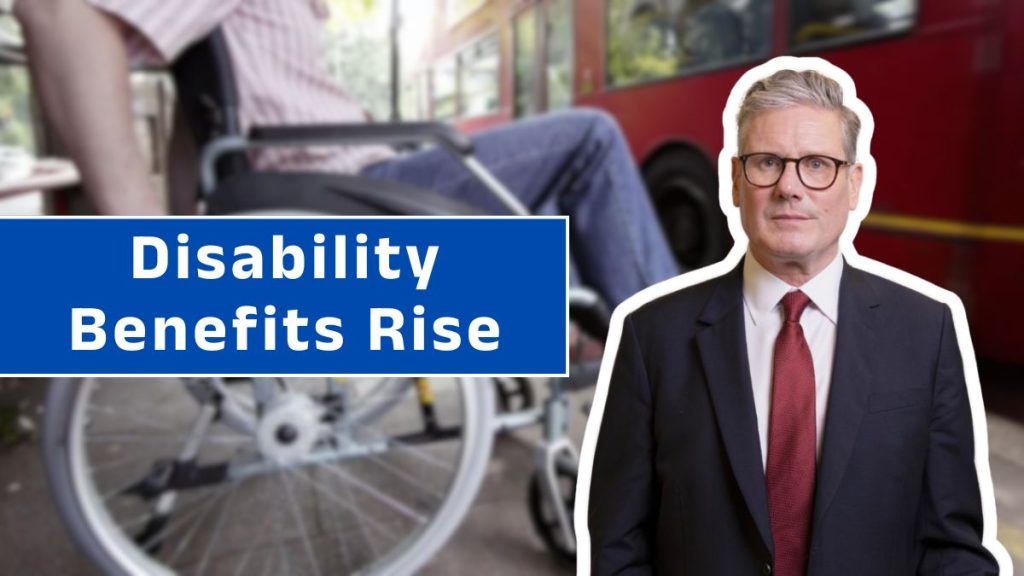The Department for Work and Pensions (DWP) has confirmed that new home ownership rules will take effect from 2025, directly impacting UK pensioners. These changes are aimed at improving fairness in welfare support, aligning property-related benefits with modern housing costs, and ensuring that public funds are targeted at those who need them most. For many older citizens who rely on State Pension and other support, understanding these updates is essential. Without proper awareness, some could inadvertently break compliance or miss out on entitlements. This overview explains what the changes are, why they have been introduced, and how they may affect pensioners’ finances from 2025 onwards. It also highlights practical steps pensioners should consider, such as reassessing property values, updating records with local authorities, and seeking independent advice to protect their entitlements under the new DWP guidelines.
Why the Rules Are Changing

The UK housing market has evolved dramatically over the past decade, with property values soaring and more pensioners owning their homes outright or inheriting family properties. According to the DWP, the current welfare system no longer reflects this modern reality.
Previously, many pensioners with substantial property assets could still qualify for certain benefits meant for lower-income groups. To correct this imbalance, the government will redefine how property ownership is considered in welfare assessments starting from 2025.
The update aims to make benefit distribution fairer and more transparent, ensuring that those with valuable homes contribute more before relying on taxpayer-funded aid. The DWP has stated that this is not about penalising homeowners, but about aligning welfare entitlements with real-world economic conditions.
Key Features of the New DWP Home Ownership Rules (Effective 2025)
The 2025 reform introduces a number of critical updates that pensioners must be aware of:
- Revised Property Valuation Thresholds
Pensioners who own homes above a certain market value may see changes in how their property affects benefit entitlements. The new system will use updated valuation bands tied to regional housing markets. - Stricter Rules on Second Properties
Those with multiple properties — including holiday homes or inherited houses — will face tighter scrutiny. The DWP will require clearer disclosure of ownership, rental income, and property use. - Automated Property Verification
The DWP will use Land Registry data and council databases to automatically cross-check ownership details. Pensioners must ensure their property records are correct to avoid assessment delays or compliance issues.
These updates represent a significant shift from the previous manual, self-reporting system that often led to inaccuracies or overpayments.
How the New Rules Affect Pension Credit
Pension Credit remains a crucial source of financial help for low-income pensioners, ensuring a guaranteed minimum weekly income.
Under the 2025 rules, property values will play a larger role in determining eligibility. Pensioners with high-value homes but limited cash income may be encouraged to explore equity release, downsizing, or partial property transfers to remain eligible.
While primary residences will still receive some protection, thresholds will tighten, meaning fewer people with significant property assets will qualify for full Pension Credit payments.
The DWP emphasises that these updates aim to improve transparency rather than punish homeowners. Pensioners are advised to review their benefit statements and use online tools — or charities like Age UK — to estimate how the new calculations might affect them.
Changes to Housing Benefit and Council Tax Support
While Housing Benefit mainly helps renters, some pensioners who own leasehold or shared ownership properties receive partial support for service charges or ground rents.
Under the new framework:
- Claimants will be required to provide more detailed proof of housing costs, including service charge breakdowns and payment history.
- Council Tax Support assessments will adopt updated DWP property thresholds, which could reduce discounts for those with higher-value homes.
- Pensioners owning premium properties may be asked to contribute a larger share toward council tax bills.
Local councils will apply the new rules regionally, and some may offer transitional relief during the first year of implementation. Pensioners should contact their local authority early to confirm what applies in their area.
Preparing for the 2025 Transition
The key to managing these changes successfully is preparation. Pensioners should begin planning now to avoid disruptions in benefit payments or compliance issues.
- Reassess Your Property Value:
Use online valuation tools or professional estate agents to determine your property’s current market worth. - Review All Benefit Entitlements:
Compare your present benefits with projected thresholds for 2025 to identify any potential shortfalls. - Plan Ahead if You Own Multiple Properties:
Seek legal and financial advice if you’re considering selling, gifting, or transferring ownership of a second home. - Update Records:
Ensure your property details, rent agreements, and DWP correspondence are current and accurate.
By taking these steps before 2025, pensioners can stay compliant and minimise financial surprises when the new rules are enforced.
Impact on Pensioners with Second Homes
The updated rules place particular emphasis on second home ownership. Pensioners who own an additional property — even if it’s not generating rental income — will see stricter assessment processes.
The DWP’s reasoning is that individuals with significant property wealth have additional financial capacity compared to those who rely solely on the State Pension. In these cases, benefits may be reduced or capped unless financial hardship can be demonstrated.
However, pensioners who use a second property as a residence for dependents or carers may qualify for exemptions, depending on local authority discretion.
Common Misconceptions About the 2025 Rules
Since the DWP announcement, several myths have circulated among pensioner communities. Let’s clarify the facts:
- Myth 1: “All homeowners will lose their benefits.”
False. Primary homes remain protected up to a certain value threshold. Only those with high-value or multiple properties may see reductions. - Myth 2: “Pensioners will be forced to sell their homes.”
Incorrect. The DWP will not require the sale of a primary residence. However, pensioners with significant equity may be advised to explore voluntary options like equity release. - Myth 3: “Only new claimants are affected.”
Wrong. Existing Pension Credit and Housing Benefit claimants will also be reassessed under the new criteria, though transitional protections may apply.
Separating fact from misinformation is crucial to avoid panic or poor financial decisions.
Seeking Advice and Support
Navigating the new DWP rules may feel daunting, but help is available.
Pensioners are encouraged to seek free and impartial advice from:
- Age UK – for benefits and property planning guidance.
- Citizens Advice – for help with appeals, documentation, and DWP communication.
- MoneyHelper – for financial planning and equity release options.
Professional financial advisers specialising in later-life planning can also assist with asset management and compliance strategies under the new regulations.
How to Stay Compliant and Avoid Penalties
The DWP will increase property verification through automated data-sharing with HM Land Registry. To avoid penalties:
- Promptly report any property sales, transfers, or new acquisitions.
- Keep written confirmation of any valuation reports.
- Respond quickly to DWP correspondence requesting verification.
Failure to update property records or report changes could lead to benefit overpayments, deductions, or legal action under fraud-prevention policies.
Preparing Financially for Retirement Stability
Beyond compliance, the 2025 rules serve as a reminder for pensioners to strengthen long-term financial planning.
Key steps include:
- Reviewing all income sources — pensions, savings, and equity.
- Reducing high-interest debts before retirement.
- Exploring supplementary income options such as part-time work, letting spare rooms, or community grants.
For many pensioners, the upcoming transition offers an opportunity to reassess financial security and plan for sustainable living in later life.
For pensioners, the best strategy is awareness and preparation. By reassessing property values, updating personal records, and seeking qualified advice, older citizens can continue to access the support they deserve — without unnecessary disruption.
The message is clear: plan early, stay informed, and remain proactive as the UK transitions into the new housing benefit framework in 2025.
FAQs on DWP 2025 Home Ownership Rules
Q1. When do the new DWP home ownership rules take effect?
The new rules are set to be implemented in April 2025, with assessments and property verifications beginning soon after.
Q2. Will my main home affect my Pension Credit eligibility?
Your primary residence will still be protected to an extent, but updated valuation thresholds could influence calculations if your home’s market value is high.
Q3. What happens if I own a second property?
Pensioners with second homes will face stricter means testing and must disclose full ownership and value details. This could reduce benefit entitlements.
Q4. How can I prepare for the new changes?
Check your property valuation, update records, and seek professional or charity-based advice well before the 2025 rollout.
Q5. Will I lose my benefits if I don’t comply?
Failure to report accurate property details may lead to overpayment recovery, fines, or suspension of benefits. Staying compliant is crucial.

















